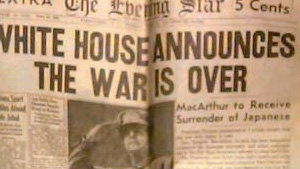
|
AS THE 8AM DEADLINE PASSED, REPORTS SUGGEST BOTH SIDES HAVE TAKEN UP TERMS OF CEASEFIRE, HOWEVER SKEPTICALLY 14 August 2006 A ceasefire as laid out in UN Security Council resolution 1701, passed unanimously on Friday, came into effect this morning. Though Hezbollah launched a record number of rockets yesterday into northern Israel, and Israeli warplanes continue to batter Beirut and other sections of southern Lebanon less than half and hour before the 8am deadline, one hour later there were reports that Israeli aircraft were "absent" from Lebanese skies and that Hezbollah had ceased firing rockets into Israel. There had been mounting confusion in recent days as the Israeli and Lebanese governments and Hezbollah all said they would abide by the terms of the UNSC resolution, but the top Israeli general in charge of operations in Lebanon said he expected at least one more week in the offensive and Hezbollah's leader said his group reserved the right to resist any future Israeli incursions. Israel's foreign minister Tzipi Livni, said on Saturday that on Monday, Israel would cease its offensive, but that troops would remain until a stabilization force was able to secure southern Lebanon. According to UNSC resolution 1701, the stabilization force will consist of 15,000 UNIFIL (UN forces in Lebanon) peacekeepers and 15,000 Lebanese military personnel. The force will have as its mission the task of maintaining a "Hezbollah-free zone" and preventing further clashes between Hezbollah and the Israeli military. Dozens of civilians were killed yesterday as Israel intensified its airstrikes ahead of the agreed hour of the ceasefire, raising tensions and causing many to speculate the peace will not hold. Hezbollah was spawned by the 1982 Israeli invasion of Lebanon, and sees as its mission the total resistance to Israeli force. Its tactics have been indiscriminate and have routinely targetted civilians, and on the last full day of the current crisis, Hezbollah launched an estimated 250 rockets into northern Israel. Hezbollah's launch sites are generally thought to be both covert and mobile, leading to the strong possibility that they will continue to prepare for conflict, even as the ceasefire arranges a new force to stabilize a swath roughly 18 miles wide in southern Lebanon. Israel, for now, says it will not withdraw the estimated 30,000 ground forces that have taken up positions across that territory. The speedy arrival of an effective and well-positions multinational peacekeeping force is necessary to prevent current tensions from pushing the two sides back into open conflict. As the day wore on, there were reports of some clashes, and 6 deaths in fire exchanged between Israeli and Hezbollah forces, but the wider truce held. All parties seem eager to see the as yet undetermined multinational force deploy to southern Lebanon, fearing that individual acts on either side could trigger a new conflagration. [s]
BACKGROUND: Diplomacy will play a vital role in any resolution to the Israel-Lebanon conflict, but will involve tough choices for any parties joining the negotiations. While having expressed visceral opposition to contact with Damascus, the White House is likely to have to cobble together an improbable coalition of rivals to achieve a functional ceasefire on the Israel-Lebanon border territories. [Full Story] US STATE DEPT. TO WAIVE FEE FOR EVACUEES FROM LEBANON The United States Department of State has issued a statement saying it plans to waive any fees associated with US nationals' evacuation from the now wartorn Lebanese territory. The situation had provoked anger, as evacuation teams were late in arriving, and stranded Americans complained the proposed commercial fees were making it difficult to arrange their departure. [Full Story] ISRAEL-LEBANON CONFLICT RAPIDLY ESCALATING Israel's bombardment of Lebanon is described today as "relentless", with new targets in northern Lebanon having been hit and civilian death tolls and injuries mounting. Leaders at the G8 summit have issued a joint communiqué blaming Hezbollah attacks on civilians for the violence, demanding an end to rocket attacks, but calling on Israel to cease all operations in Lebanon that could harm civilians. [Full Story] ISRAEL EASES CONDITIONS FOR CEASE-FIRE United Press International is reporting Israel has eased the conditions it requires to suspend military operations and its blockade against Lebanon. PM Ehud Olmert, in a speech to Israel's parliament expressed his determination not to yield to any group that launches missiles into Israeli cities, but signalled that moving Hezbollah away from the Israeli border could bring about a cease-fire. [Full Story] OBSERVERS WORRY MIDEAST ESCALATION COULD FLARE INTO WAR Israel's attack on Lebanon has escalated, with bombing of Beirut's international airport, the main highway between Beirut and Damascus, at least one power station, several bridges, and a mounting sea blockade. Israel says it holds Lebanon responsible for Hezbollah's abduction of two Israeli soldiers and is acting in self-defense. The US State Department, through Secretary of State Condoleezza Rice, has called on all sides to refrain from using disproportionate violence and to scale back attacks, but admits the right of Israel to defend itself. Lebanese officials have criticized Israel's PM Ehud Olmert's assigning blame to Lebanon as a whole for the actions of the radical group Hezbollah, saying neither the Lebanese governmenet nor even Hezbollah's political wing have any influence over the military element of the group. [Full Story] AMNESTY REPORTS INTERNATIONAL ARMS TRADE 'OUT OF CONTROL' Amnesty International has published a new report examining the international arms trade, and its findings indicate there is little control on the expanding web of private interests seeking to profit from a proliferation of dangerous weapons. The report also illustrates the ways in which this scattering of dangerous weapons has lead to severe human rights abuses. [Full Story] |
|||||||
|
||||||||

